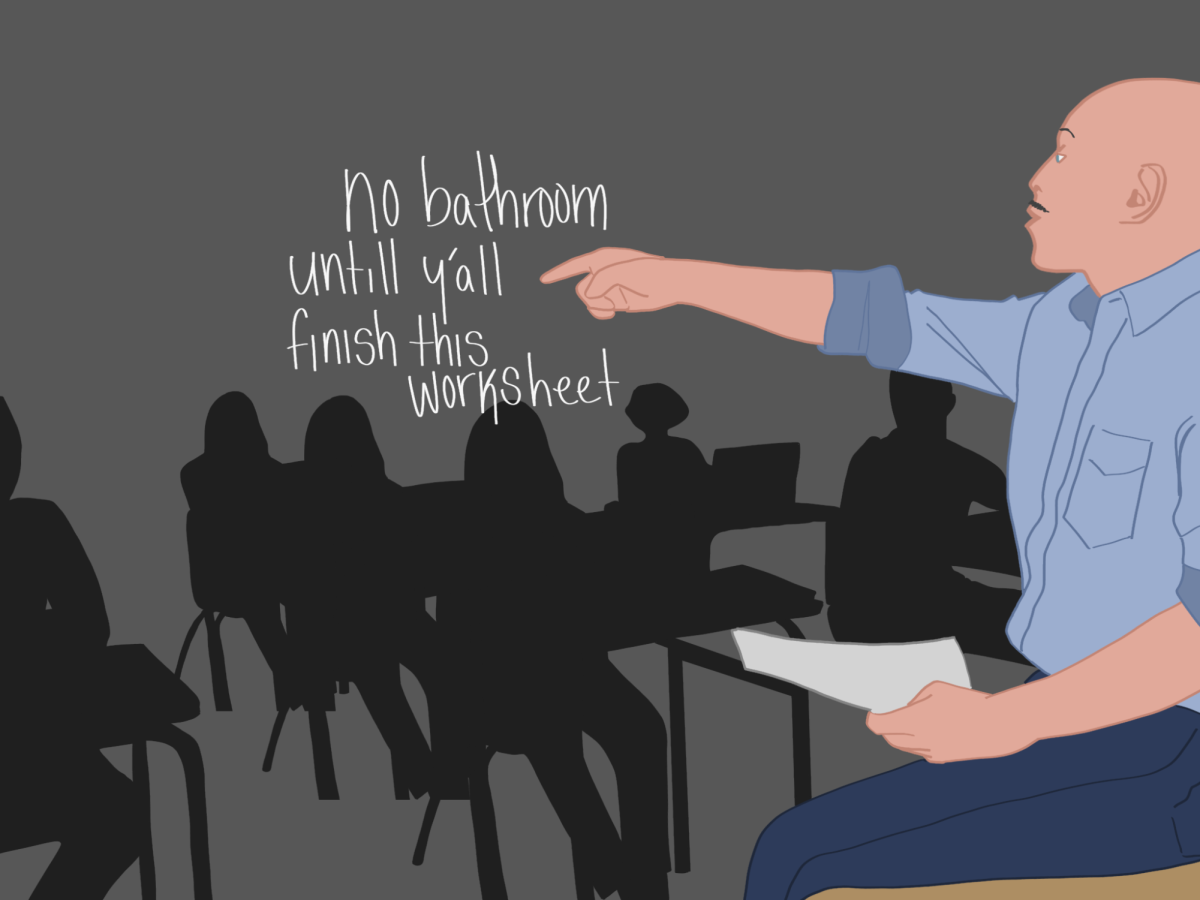Since elementary school, teachers have preached the saying ‘treat others the way you want to be treated,’ but some students believe that teachers don’t hold themselves to this same standard.
Students have accused their educators of abusing their positions of power. From blatant disrespect to dismissing students’ concerns, teachers are being accused of blurring the lines between discipline and domination.
While teachers are required to keep students’ grades between themselves and the student, sophomore Grace Harrington has seen this rule being broken first-hand on multiple accounts. Harrington witnessed a teacher making fun of students’ mistakes behind their backs to another student.
The power trip that some teachers experience from working in a position over teenagers can also fuel conflicts when teaching and grading course material.
“They expect that ‘I’m a teacher so what I’m doing right now and what I’m saying to you is correct,’” Harrington said. “‘You have to listen to me and I don’t care if I’m hurting you.’”
Senior Dylan Hager agrees but offers further insight into a potential root of teachers’ aggression.
“I think it’s a two-way thing. If you show your teachers respect then they’ll show it back,” Hager said. “There are some circumstances where you might not get that from teachers, but most of the time if you show them respect they’ll give it back to you.”
When it comes to confronting this unfair behavior, students often run straight to their school administrators with their concerns in hopes of their teacher facing punishment for their actions. As much as students wish, this isn’t what happens.
“I do think quite often that administrators may think that students exaggerate because there are always two sides to a story,” Harrington said. “And it’s extremely hard, I feel, to really enact change on teachers.”
In cases of repeated and continuous complaints, students have resorted to external sources, hoping to bring recognition to their teachers’ unwanted behaviors. Students have utilized Change.org, a platform that allows users to create and sign online petitions, in attempts of rallying support to get a teacher fired. Whether these efforts are effective is still up for debate.
“I think they’re not effective because those teachers are still here,” junior Maya Burroughs said. “It also causes more problems, especially if the teacher knows that you started the petition.”
If a student feels that they’re being treated poorly by a teacher it’s recommended that they first speak to the teacher one-on-one in hopes of solving the issue independently. If nothing results from that, students should then contact their administrators and work with them to solve the problem.
Countermeasures such as additional training for teachers or more thorough investigations into student complaints can be introduced to prevent conflicts between students and teachers.
“I know a lot of my teachers are amazing and they don’t really abuse their power and they understand that we’re all just teenagers, but I think that it’d be an important thing if teachers were really talked to and shown that this isn’t okay because we’re just teenagers and we can mess up,” Harrington said.









